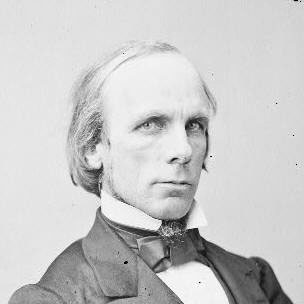W.G.T. Shedd on the Genius of Augustine
Apart from the writings of Jonathan Edwards, no other theological writings have had such an impact on the development of my own thinking as much as those of Augustine. If you have never read The Confessions–Augustine’s autobiography–you are missing out on an intellectual and devotional masterpiece. There is certainly much to be criticized in the early writings of Augustine (he must be read as a theologian in progress), but there is equally as much theological depth there. B.B. Warfield once said that the Reformation was Augustine verse Augustine. This becomes clear from a systematizing of his doctrinal statements, no less than a study of his early and later writings.
W. G. T. Shedd wrote, in the 1860 Andover ed. of The Confessions, what may rightly be considered the best introduction to the work. Shedd opened with an analysis of what made Augustine such a unique theologian. There is much to be learned from Shedd’s assessment:
The first characteristic that strikes the reader is, the singular mingling of the metaphysical and devotional elements in the work. The writer passes, with a freedom that often amounts to abruptness, from the intensely practical to the intensely speculative. In the very midst of his confession of sin, or rejoicing over deliverance from it, his subtle and inquisitive understanding raises a query, the answer to which, if answer were possible, would involve the solution to all the problems that have baffled the metaphysical mind from Thales to Hegel. In the very opening of the work, for example, when the surcharged and brimming soul is swelling with its think-coming emotions, and it is seeking vent for its sense of the Divine mercy which has saved it from everlasting perdition, it slides, by an unconscious transition, to the question: “How shall I call upon my God, my God and Lord, since when I call for Him I shall be calling Him into myself? And what room is there within me, whither my God can come into me? Whither can God come into me, God, who made heaven and earth?” At the very instant when Augustine is enjoying the most heartfelt and positive communion with God, his intellect feels the pressures of the problem respecting the possibility of such an intercourse. Such transitions are perpetually occurring throughout the work, until, in the eleventh book, the author leaves his autobiography altogether, and devotes the remainder of the work to an interpretation of the opening chapters of Genesis, in which he discusses the most recondite problems respecting Time and Eternity, the Creator and Creation, and the Triunity of the Divine Essence.




This is great Nick! I had not read Shedd’s introduction–it’s fabulous, and brief. (NOTE: The googlebooks link to the introduction skips Shedd’s theological introduction and jumps to a brief biographical introduction. But, you can page down or arrow down from the table of contents to get to it.)
Shedd presents four distinctive characteristics of the Confessions:
1. The mingling of metaphysical and devotional elements in the work.
2. The union of the most minute and exhaustive detail of sin, with the most intense spiritual abhorrence of it.
3. The Confessions palpitates with a positive love of God and goodness.
4. The Confessions afford insight into the origins and progress of the Christian experience.
Nick, good post, thanks. I have had the same impressions on Augustine (though I could never express them so articulately), and I would have to say he is my favorite theologian for this very reason. He often struck me as being strong where we are weak, in his ability to theologize without unnecessary abstraction from the heart. I have just begun to make forays into his other writings, and am finding his brilliance is consistent throughout.
Curious to hear that Googlebooks skipped over the intro. I’m currently reading Peter Brown’s Bio on Augustine and comparing his work to Sheed’s has been really insightful. Thanks Nick.
Joel,
The intro is included in the link but you have to scroll down a bit to get to it.